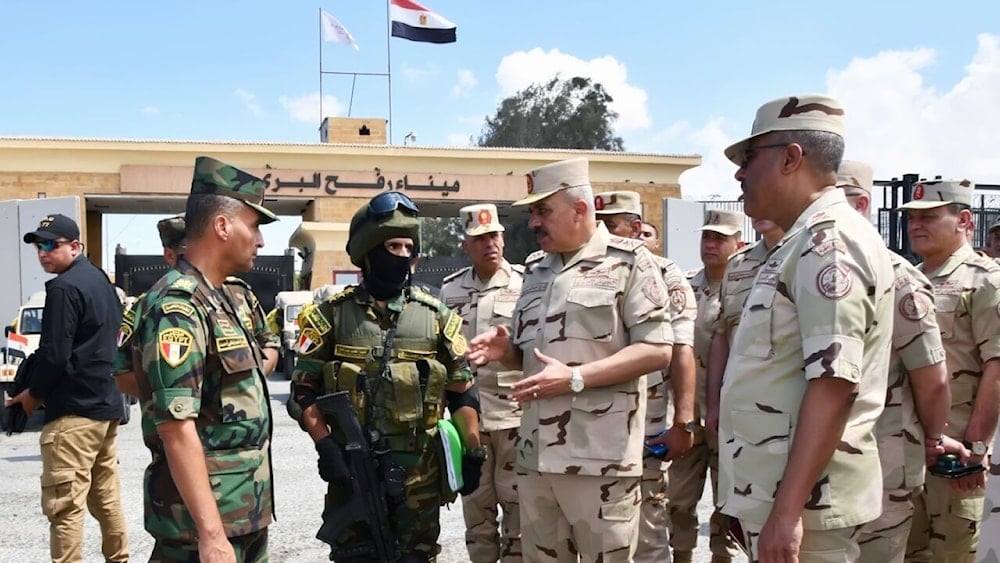Egypt's chief of staff makes unannounced visit to Egypt-Gaza border
A spokesperson for Lt. Gen. Ahmed Khalifa says the visit aimed to assess the situation and review the security measures at the border.
-

Lt. Gen. Ahmad Fathy Khalifa, chief of staff of Egypt’s armed forces, inspects security conditions at the Egypt-Gaza border, known as the Philadelphi Corridor, on September 5, 2024. (Egyptian Ministry of Defense)
The chief of staff of the Egyptian Armed Forces, Lt. Gen. Ahmed Khalifa, made an unexpected visit to the Gaza border on Thursday to assess the situation and review the security measures, spokesperson Gharib Abdel Hafez said in a statement.
Khalifa stressed to the Egyptian army soldiers stationed at the Rafah crossing the need to rely on "high vigilance and the ability to deal with all emergencies" during the visit he made today to inspect the security situation and measures on the border with the Gaza Strip.
Lt. Gen. Ahmed Khalifa inspected the security measures on the northeastern side, where the tour began by passing by the forces tasked with securing the Rafah land crossing.
In May, Israeli forces launched a ground invasion into Rafah and occupied the Philadelphi corridor - separating the city from Gaza - and the Rafah crossing.
The Israeli security cabinet approved last week new maps outlining areas across the Philadelphi Corridor that the Israeli army plans on occupying.
Read more: Netanyahu's claims regarding Egypt aimed at justifying failure: Source
Shortly after, Israeli Prime Minister Benjamin Netanyahu announced that the IOF would not leave the corridor, subsequently setting back prisoner exchange talks to square one with the Palestinian Resistance demanding primarily a full Israeli withdrawal from Gaza.
According to Israeli media outlets, Israeli security and military officials warned of the exact scenario if a ceasefire agreement with the Palestinian Resistance was not reached.
Justifying the aggression
Six Israeli captives were found dead by IOF in Rafah last week, further growing internal pressure on Netanyahu to reach a prisoner exchange agreement and drop his decision to maintain the occupation of the Philadelphi Corridor.
During a media address on Monday, Netanyahu criticized Egypt and claimed that it failed to secure its border with the Gaza Strip, which "emboldened" the Palestinian Resistance.
Read more: 'The Bloody Document': How Netanyahu's tactics killed Israeli captives
Responding to the Israeli prime minister, Egypt released a statement on Tuesday categorically rejecting his claims, and held the Israeli government responsible for "the consequences of making such statements that exacerbate the situation, aim to justify aggressive and inciting policies, and lead to further escalation in the region."
"The Arab Republic of Egypt affirms its commitment to continuing its historical role in leading the peace process in the region, which contributes to preserving regional peace and security and achieving stability for all the peoples of the region," the statement concluded.

 3 Min Read
3 Min Read








